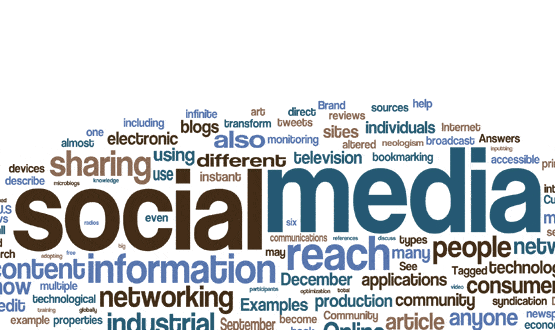January saw the publication of a guide called, thrillingly, ‘HR and social media in the NHS.’ The guide was issued by NHS Employers, which is part of the NHS Confederation, so it was, not surprisingly aimed at HR directors and managers.
However, it is relevant to others with an interest in social media, such as communication teams and even passers-by such as me or you.
The guide opens by arguing that “social media offers great opportunities for organisations and individuals to listen and have conversations with people they wish to influence.”
However, the mainstream NHS has not really bought into this. Most NHS IT networks block staff access to any form of social media with paternalistic vigour, so it’s hard to avoid the conclusion that most trusts are suspicious about social media and how it might be used to impact on their reputation.
This is illustrated by the bizarre situation that faces some NHS Grampian staff. At the bottom of a page on the health board’s own website, there is a link promoting Grampian sexual health services on Facebook, underneath which the following text is shown:
“NHS Grampian staff are advised that they will not be able to (and should make no attempt to) access Social Media sites when on a NHS Grampian networked computer.”
In other words, it seems that staff may find themselves being disciplined for viewing content on a popular social media site that is being promoted by their own trust if they do it on the trust’s computers (Thanks to the #nhssm Social Media in the NHS website for highlighting this amusing but seriously skewed anomaly).
Guidance, and more guidance
NHS staff are not short of advice on social media. There is guidance in abundance on the use of Facebook, Twitter and similar services from a wide variety of professional organisations, including the usual royal medical colleges of nursing, general practitioners, and so on.
Statutory bodies, such as the Nursing and Midwifery Council and General Medical Council, also set the bar for registrant’s standards of behaviour when using social media both personally or professionally.
In general, their advice is cautious but sensible. A debate at RCN Congress last year noted that social media sites and comment boards can be “unfriendly” places in which “trolling” is common, but also highlighted the ways in which they can provide help and support for staff and patients alike.
When it came to taking part, activist David Dawes advised people not to post anything they wouldn’t want their friends, parents, managers, or the NMC to see.
Reading the Ts&Cs
For those working in the NHS, however, there is an additional hurdle to using social media, which is their terms and conditions of employment.
Most NHS employers’ terms and conditions include some specific clauses relating to staff conduct when using social media (outside the trust’s network, if that simply stops access).
These include reasonable advice like maintaining confidentiality about patients, relatives, carers and colleagues, and not disclosing confidential information about their employer.
Employees are also advised to use the confidential channels available to them to raise concerns and not to engage in activities that may bring the employer into disrepute. Bu this takes us into some interesting territory.
Robert Francis QC has just published his final report into the scandal at Mid Staffordshire NHS Foundation Trust, which highlighted (among many other problems) the way the trust overlooked the many complaints that it received.
Francis was very interested in the possibility that social media would have provided another outlet for complaints, and held a seminar on the subject. It is at least possible that if people had been able to make their concerns known using social media things would not have gone so badly wrong.
However, this introduces an interesting dilemma for staff. Could an NHS employee using Twitter to tweet information relating to, for example, the poor mortality and morbidity rates at their trust be considered to be bringing the organisation into disrepute?
Would a healthcare professional be held to account if they re-tweeted tweets from a patient who was alleging they were subject to poor standards of care?
From a health professional point of view, could re-tweeting this information be considered a breach of confidentiality even though it is in the public domain? At the moment, social media is not sufficiently mature within our cultural landscape to be able to answer these questions with any certainty.
Power in the pocket
Thousands of NHS staff carry the means to access social media sites into work in their pockets every day. And yet organisations continue to behave as if they really believe that relaxing their grip on staff who want to use social media will bring about Armageddon.
Ironically, they do this even though public organisations are increasingly expectedto use social media to provide access to advice and services and to provide immediate responses to comments from others.
NHS communications and PR departments are under pressure to deliver the message of their organisations in a cost effective way. And they, at least, are very aware of the power that social media can have in determining how an organisation is portrayed, and how quickly the direction in which social media moves can change.
Wouldn’t it be a good idea if they jumped right in to advise staff on how to use the medium appropriately and safely, to promote the thousands of individual acts of care that the NHS undertakes every minute of every day?
That NHS Employers guidance argues that while there is a need to “train staff in what is and isn’t acceptable behaviour on line” there is no going back.
Social media offers an opportunity to promote leadership, direct learning, and unparalleled democratisation of access to decision makers. No other medium allows the voice of the individual to be heard as an equal.
Helping staff to use it will, no doubt, create a few sticky moments. But as even NHS Employers acknowledges: “The next generation of NHS staff will never have known a world without the internet or mobile phones. How the NHS embraces their use of social media for the benefits of staff and patients will be crucial in creating a sustainable NHS.”


Andrew Carr
Andrew Carr is an emergency nurse practitioner working in the emergency department at Cambridge University Hospitals NHS Foundation Trust. Andrew has worked in emergency care for 25 years, and for the past four years he has been clinical IT lead for his department.
Andrew is passionate about delivering information technology to frontline staff enabling them to deliver safe, high quality care efficiently and effectively. He has recently developed ED clinical dashboards and waiting time information displays.
He is also participating in an eHospital programme that will see all clinical IT systems across the trust replaced by a single hospital information system in 2014. As a former head of IT once told him “if an IT system can work in the emergency department it can work anywhere!”

